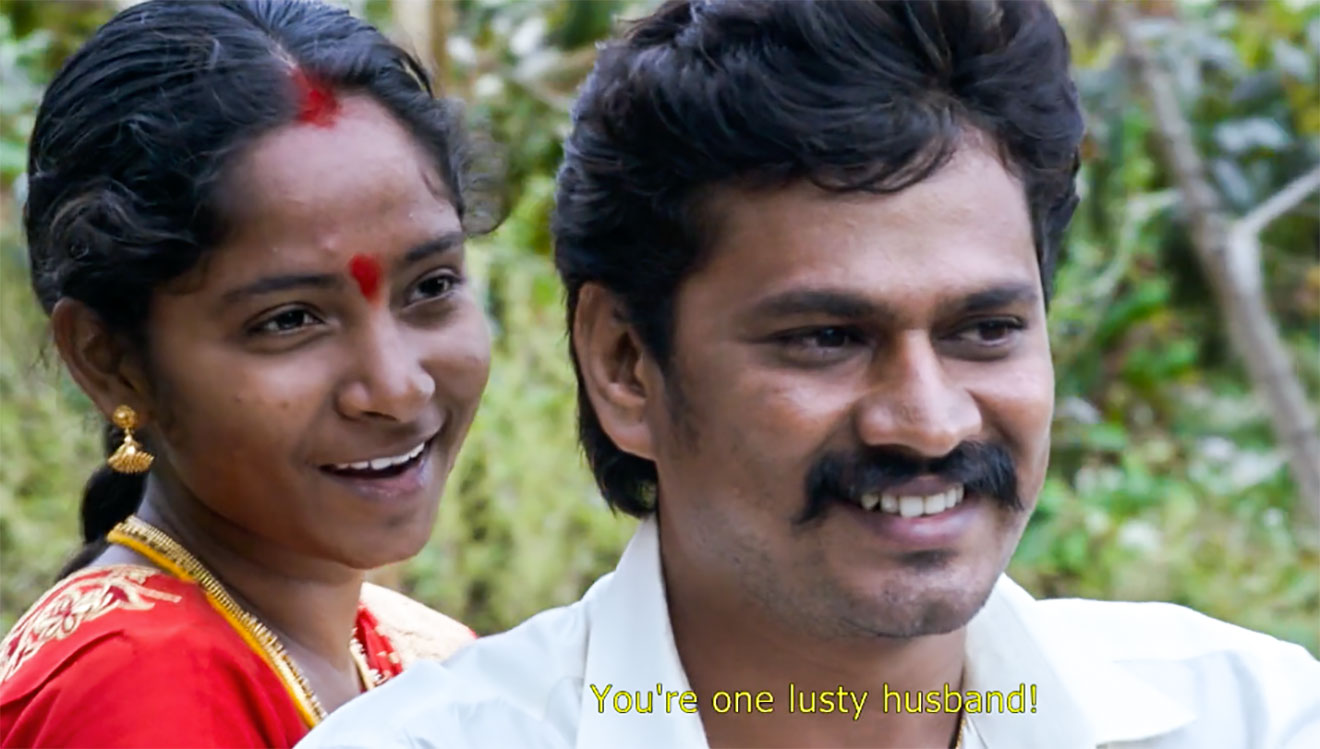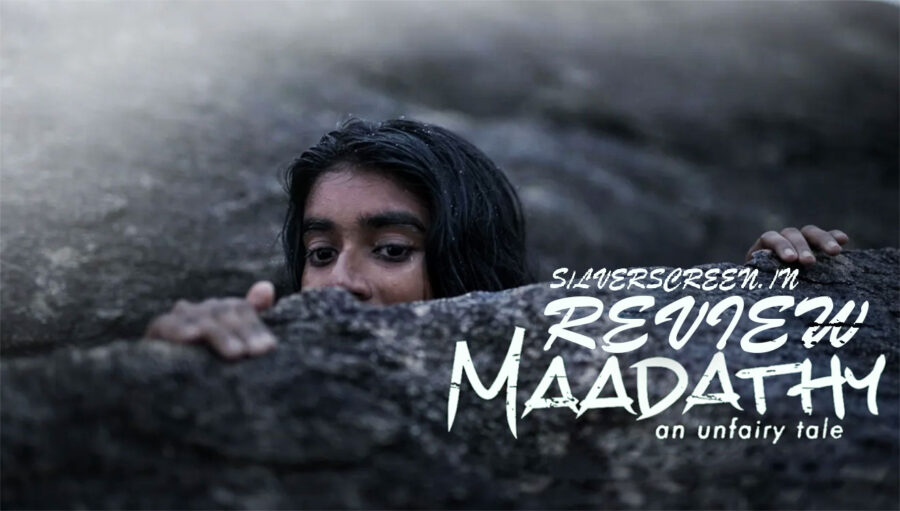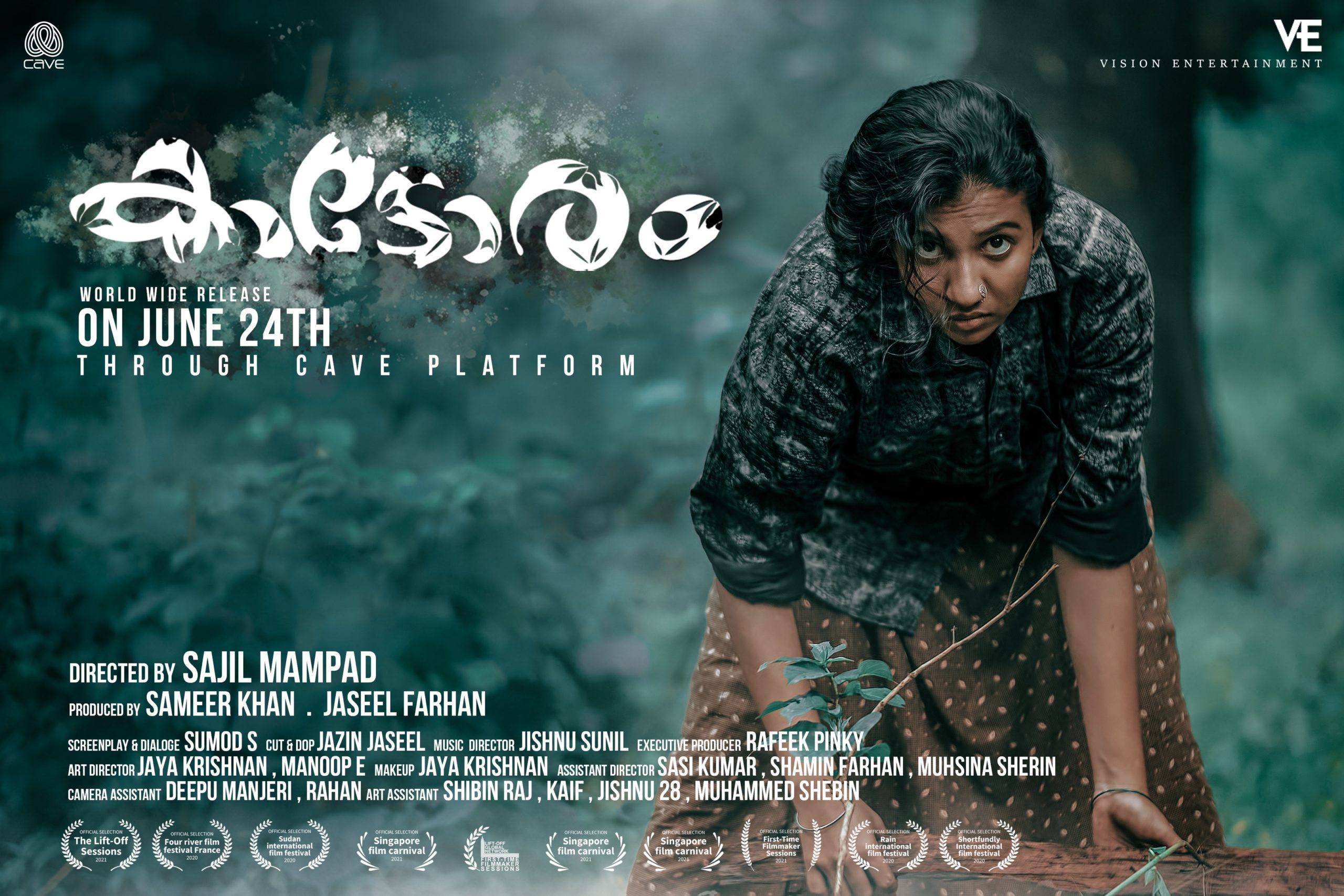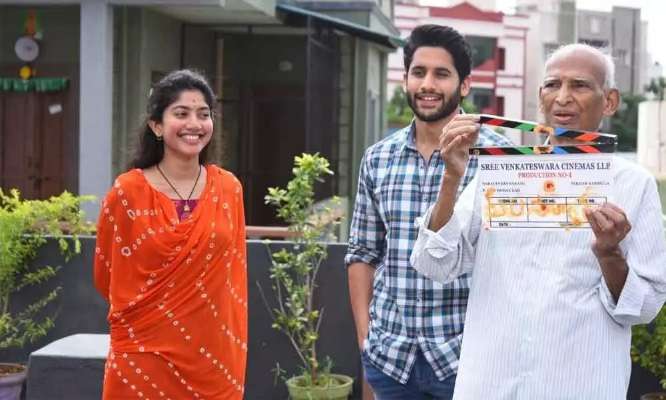Maadathy starts with a rather misleading yet significant scene in which a newly-wed couple is heading to the ‘Maadathy’ temple. The bride holds on to her husband romantically, and ends up smearing some of her vermillion on his shirt. He worries about what the villagers will say if they see it; she argues that they’re married, he has nothing to worry about. The bride asks her husband to stop the bike and goes deep into the bushes, only to realise that she’s started bleeding. Her period is on. Complaining that they haven’t even properly consummated the marriage, her husband walks towards a hut to ask for some cloth that his wife can use. This is perhaps the fourth minute of the film. You do not know what’s going to happen next, but you know you’re about to witness something unnerving. When he doesn’t return, she walks up the plateau to the hut to find a collection of paintings hung on freshly washed white linen. A little boy starts explaining what they mean, scene-by-scene, painting-by-painting. That’s the start of Maadathy – an unfairy tale.
“The river stands witness to many injustices, but it flows as usual.” Director Leena Manimekalai’s Maadathy – an unfairy tale, is the story of Yosana, a girl born in the Dalit caste group ‘Puthirai Vannaar’ in the state of Tamil Nadu in India. She belongs to the community of untouchable and unseeable washermen who are enslaved to inherently wash soiled clothes, linen smeared with menstrual blood, and shrouds. They clean, but they’re untouchable. They wash themselves before the light hits the sky, only to wash the dirt off others during the day.

Screen-Shot-2019-11-18-at-12.23.35-PM
Yosana belongs to the damned caste, she bathes in the river in the dark so that no one can see her. But, her eyes have sparkling dreams, fantasies about a young man, as she stares at the lines of her palms in the crystal clear water while tadpoles eat off it. Her conversations with her mother are interesting and symbolic. “Don’t you like me? Wasn’t I born to you? Always berating me!” Yosana complains. Her mother says, “They told me to break your neck when you were born…If you keep wandering like this, who will marry you? Tell me? What a curse to be a beautiful girl in this slave caste!”
Yosana’s mother has to wash the clothes, day after day, hunt, cook and clean and save her beautiful daughter from the evil eyes of sex deprived men who wander around the area with donkeys. Once, her husband is drunk after being made to drink too much alcohol. One of the men pins her down near the bank. She cries for help referring to him as ‘Lord’. She’s raped. Injustice engulfs the village one incident after another, but the river keeps flowing.
The director symbolically tells the story with the sound of the flowing river, rain water, dew drops and calm waters of the pond in the village. This film is among the only stories ever made on casteism and untouchability that keeps you glued, makes you think, raises your heart rate, yet manages to horrify and emotionally stir you while you almost forget that a little boy is narrating the story he has painted on cloth to a newly married woman who cannot seem to find her husband.
Recommended
From the blood to the sound of water, the mud and the inaugural celebration at the Maadathy temple, the production design stands out in almost every second frame. The camerawork by Jeff Dolen, Abhinandhan R, Karthik Muthukumar deserves a special mention.
By the time you reach the end of this 90 minute long film, you’re exasperated, angry, depressed, yet there’s a sense of relief that in some way, Yosana gets her revenge. Leena showcases frames of the flowing water, upper caste villagers dancing in a brightly lit temple, holy songs playing in the background while simultaneously a heinous crime takes place.
This film stays with you. It’ll be mentioned in the future as a valiant and non-fabricated attempt to capture one tale about the dalits of India.
Yosana’s mother tells her that they’ll cross the river only when they get the news of the death of their relatives. They finally cross the river. Mother, father and daughter when even the clouds must be tired of pouring. The end stands true to the tagline of the film. Nobodies do not have Gods; they are Gods.



